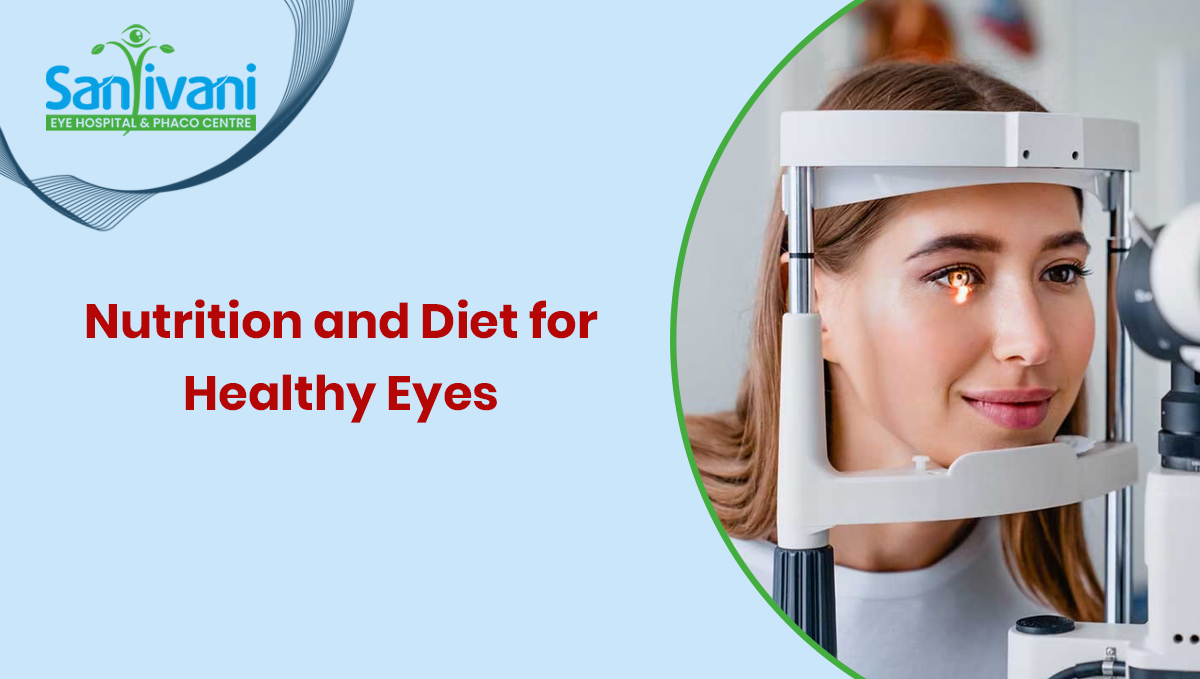
Nutrition and Diet for Healthy Eyes
For health and wellbeing, a balanced diet and nutrients are essential. The same is true for the eyes. Our diet contains nutrients and micronutrients that are crucial for ocular nutrition. Elders and doctors frequently advise us to maintain a closer eye on our diet for the long-term advantages. These days, with how dependent we have gotten on computers, maintaining good eye health is even more crucial. Hopefully maintaining eye health will be simple if you eat the right foods or nutrients.
For overall health, eye health, and the prevention of many eye-related disorders, daily exercise and a nutritious, balanced diet are crucial. The nutrients on the following list will help you see better and shield your eyes against a variety of ailments.
According to the study, using antioxidants and other crucial nutrients can lower your risk of developing cataracts and macular degeneration. Specific antioxidants may offer additional advantages. For instance, Vitamin C may help prevent or treat glaucoma. Omega-3 essential fatty acids appear to benefit the eye in a number of ways, including preventing retinal degeneration and reducing symptoms of dry eye syndrome.
Seeds
Similar to nuts and legumes, seeds are a fantastic source of omega-3 fatty acids and a wealth of vital vitamins. It contains fiber and aids in lowering the risk of cancers that specifically affect the eyes and eye-related issues. It has long been known that seeds are important for maintaining eye health. Additionally, it aids with cataract prevention. Chia seeds, flax seeds, hemp seeds, pumpkin seeds, poppy seeds, hazelnut seeds, and avocados are among the seeds high in omega-3.
Legumes and nuts
They have a lot of omega-3 fatty acids in them. Nuts are also rich in vitamins, which can protect the eye from deterioration brought on by aging. The biggest grocery chains offer nut purchases. One can even acquire these online because they are readily available.Peanuts, peas, walnuts, kidney beans, almonds, Brazil nuts, pecans, cashews, silken tofu, and lentils are some foods that are excellent for your eyes.
Fish
Eating fish that contain omega-3 rich oil in their body tissue and stomach results in higher amounts of omega-3 rich fish oil. The fish with the highest concentrations of omega-3 fatty acids are salmon, herring, tuna, anchovies, trout, mackerel, and sardines. According to several research, fish oil can treat dry eyes brought on by prolonged computer use. Additionally, it aids in preventing macular degeneration. Additionally, it aids in controlling cataract, which means that if it is still in a mild form, cataract surgery will be avoided or postponed.
Whole grains
Your risk of age-related macular degeneration and other eye issues can be reduced by eating meals with a moderate glycemic index (GI). Additionally, niacin, which is included in all grains, promotes overall eye health. Quinoa, brown rice, whole oats, whole-wheat bread, and pasta are examples of foods that include whole grain carbs. These foods all include zinc and vitamin E.
A vitamin
Vitamin A works to improve eye health by preventing dry eyes and night blindness. A deficiency in vitamin A can cause the hazardous illness xerophthalmia, which can lead to blindness. High vitamin A intake has been linked in certain studies to a lower risk of cataracts and age-related macular degeneration. Cod liver oil, sweet potatoes, carrots, black-eyed peas, spinach, broccoli, sweet red pepper, buttermilk, and chicken liver are among the foods that contain vitamin A.
C vitamin
Macular degeneration and cataract risk are decreased by vitamin C. Additionally, the potent antioxidant lowers the risk of chronic illnesses. The excellent functioning of white blood cells, which aid in having good vision, also strengthens the immune system. Orange, Kiwi, Lemon, Guava, Broccoli, Cauliflower, Brussel sprouts, Papaya, Cantaloupe, and Strawberries are foods that contain vitamin C.